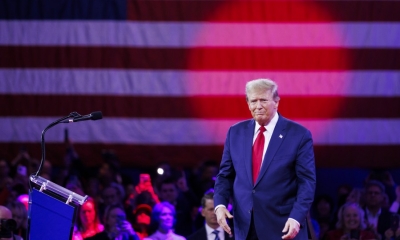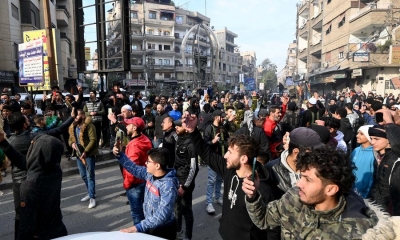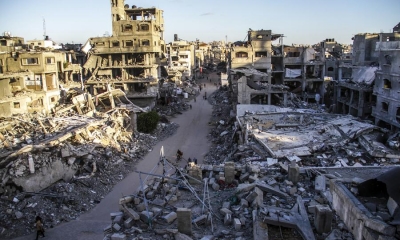Diplomacy, Ukraine War and Peace

Diplomacy must be undertaken today to bring the Ukraine war to an end.
The war in Ukraine continues despite sincere efforts by Türkiye and China to promote a diplomatic solution. Prior diplomatic efforts also failed. In the tense and explosive atmosphere in Europe, a spark could expand the war into a Europe wide conflagration. In turn, this could lead to a world war which in the worst case could go nuclear.
The chronology leading to the present situation is not complicated. The Maidan coup d’etat of February 2014 in Ukraine deposed the duly elected legitimate leader of the country and installed a puppet regime controlled by the United States and NATO. The Kiev regime then launched repressive measures and violence against the Russian ethnic Donbass region. To defend themselves, Russian ethnic areas of the country in the east and south declared their independence and civil war inevitably resulted.
Minsk process, a deception
Diplomatic efforts, called the Minsk process, were undertaken in 2014 and 2015 to end the war. The United Nations Security Council in its Resolution 2202 in 2015 endorsed the Minsk process and the package of proposed measures. The measures would have guaranteed a new Ukrainian constitution creating a federal state with autonomy for the breakaway Russian ethnic regions.
But the Minsk process went nowhere. While there were years of discussion there was no progress in implementing the Minsk 2 package of reforms. The civil war dragged on inexplicably despite a reasonable expectation that the Minsk process could and would be implemented at some point.
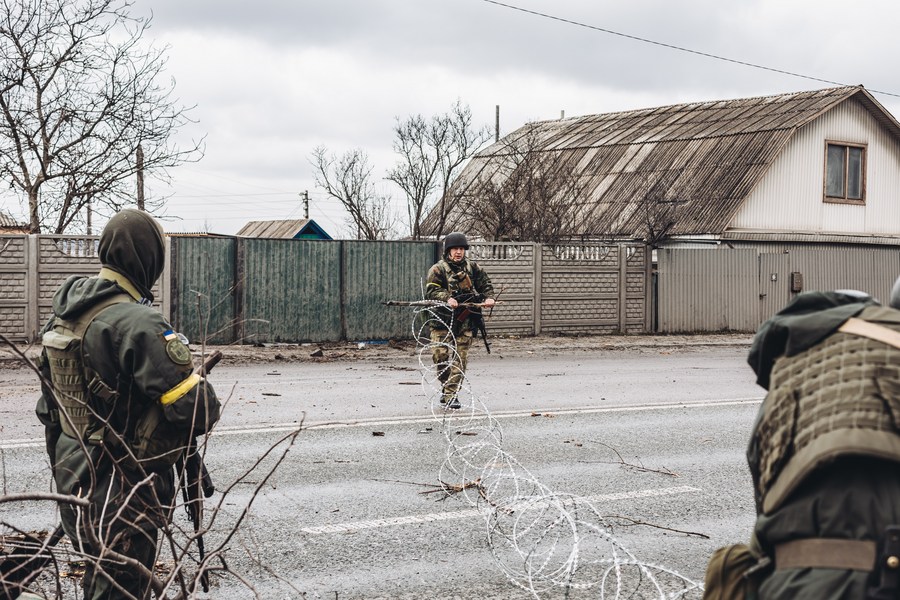
But in recent months the ugly truth has come out. Germany and France who were part of the Minsk process never intended to honor the UN Security Council Resolution. Instead, their secret agenda was to delay any resolution of the conflict by dragging out diplomatic negotiations. Simply put, the process was a calculated deception.
In recent months, both the German and French leaders in the Minsk process, Angela Merkel and Francois Hollande, revealed publicly that their diplomacy was false and a charade. They stated that the Minsk process was a delaying tactic until such time as the U.S. and NATO could build up Ukraine’s military power to confront Russia.
West seeks downfall of Russia
The long-anticipated war with Russia broke out following the Russian intervention of February 24, 2022. Russia stated that it sought to protect the Russian ethnic region of Donbass from an imminent and massive Ukrainian offensive. Moscow cited Article 51 of the United Nations Charter as the legal basis for the intervention.
Western war aims in the Ukraine have been stated plainly by U.S. officials. U.S. Secretary of Defense Lloyd Austin said the war’s objective was to “weaken Russia.” President Joseph Biden has said that the war’s objective is to bring down the present Russian government no matter how long it takes.
There is even talk of pursuing the war in order to break up and dismember Russia geographically into various independent regions. In the 1990s, the late Zbigniew Brzezinski advocated a policy that would break Russia into three independent states. Followers today of this cosmopolitan Polish-Canadian-American policy expert continue his dangerous line.
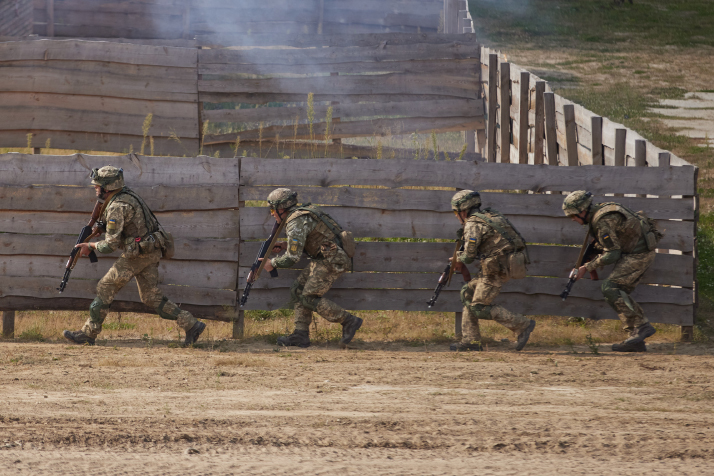
In order to launch a proxy war against Russia, Ukrainian military forces had to be built up over a number of years by the U.S. and NATO. This process began in 2015 shortly after the 2014 Maidan coup. Massive weapons supplies were sent to Ukraine and massive training programs were undertaken to create a NATO standard and well-equipped military force. The training emphasized interoperability between the Ukraine military and NATO in order to best establish its role in the anticipated and preplanned proxy war against Russia.
At the same time, U.S. and NATO assistance to Ukraine involved political, technical, information war, and intelligence activity. The purpose again was to create interoperability and efficient joint operations in these areas for the coming proxy war.
Will the Ukraine war expand?
There is deep concern among some observers that the Ukraine war could expand more broadly into Europe. Flashpoints could include Poland, Romania, and Moldova/Transnistria. Of course, this would mean that the present NATO proxy war against Russia would be transformed into a general European war. Nuclear weapons could be used.
Some observers also speculate that should a broader European war be triggered by some unforeseen incident and the scope of the conflagration could become worldwide. In this scenario, war in the Asia-Pacific involving Taiwan Island as a flashpoint could be triggered. This would place the U.S. at war on two fronts. Many observers doubt whether the U.S. has the capacity and capability to fight a global two front war. However, in Washington’s present state of hysteria and delusion such war seems possible, these observers say.
Diplomacy must stop Ukraine war
The international community looks with trepidation on the present war in Europe. With good reason there is fear that it could expand into the third World War. Rather than any winners and losers, the whole world would be a loser.
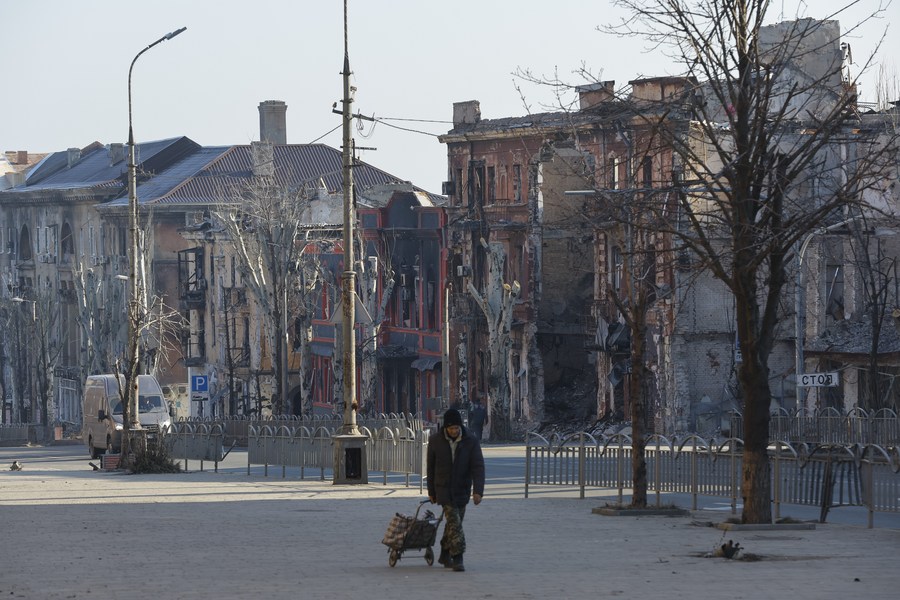
Looking back at the history of World War I raises many concerns about the present international situation. From the 1880s to 1890s, there were increasing tensions among the major powers. Imperialism motivated the British, German, French, and Russian empires who were all jockeying for position and hegemony. We see such rising tensions today and the U.S. and stated Western aim to maintain hegemony in a changing world. We see that amidst such tension we already have a war in Europe. Many fear that a spark just as happened in World War I with the assassination of an Austrian archduke in Sarajevo in June 1914 exploded into World War.
There are other parallels. Diplomacy to end the war was blocked. In 1917, Austria tried to bring the war to a halt using secret diplomacy. Austria offered to make a separate peace so that by removing itself from the war, Germany would have been pressured to make peace. Also, the ruling Habsburg dynasty would have continued and much of its territorial area would have been retained.
There were a number of factors that caused the Austrian peace initiative to fail. But one factor, in particular, was decisive. Politicians blocked it. The French political leadership blocked a diplomatic solution knowing full well that this would lead to a prolonged war.
While it would be reasonable to end such a devastating war as soon as possible, diplomacy and peace were blocked. Allied European leaders sought the destruction of the Austro-Hungarian Empire. This meant that the war had to continue with the objective of bringing down the Habsburg dynasty as well as breaking up the Austro-Hungarian Empire geographically. This war’s objective was realized after two more years of the horrors of this tragic war.
Today, the stated war objective of the U.S. and NATO is to bring down the present Russian government and to weaken and eventually dismember Russia. Of course, for Russia this means the war is an existential war. The implications of that fact are obvious.
Diplomacy must be undertaken today to bring the Ukraine war to an end. At some point, all wars end and then diplomacy picks up the pieces and arranges a settlement. Türkiye and China are to be thanked for their efforts. At the beginning of the war, Russia and Ukraine were close to reaching an agreement with Türkiye’s mediation efforts. As the war enters its second year, Chinese Foreign Ministry has issued China’s Position on the Political Settlement of the Ukraine Crisis, offering a peaceful framework for all parties to seek a diplomatic solution. The international community must seek peace and a stable European continent. The United Nations organization must insist on a diplomatic solution.
The article reflects the author’s opinions, and not necessarily the views of China Focus.
 Facebook
Facebook
 Twitter
Twitter
 Linkedin
Linkedin
 Google +
Google +





